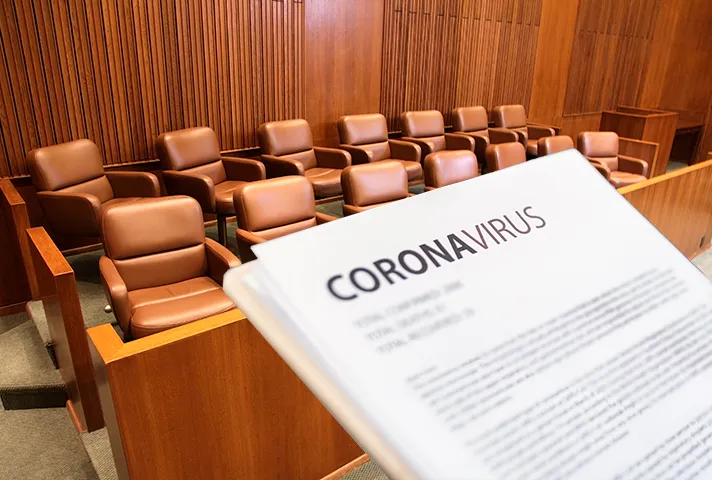
Just before leaving the building to begin teleworking, Jury Administration Clerk Jeffrey Humenik hurried around a desolate federal courthouse in Seattle, preparing the last electronic and paper notices for jurors regarding the suspension of jury service.
“We care deeply about the safety of our jurors,” Humenik said. “We hope that suspending jury trials gives jurors peace of mind and assures them that the courts are thinking of their well-being.”
As the toll of people sickened by coronavirus (COVID-19) gets larger by the hour, the Western District of Washington and dozens of other courts across the country have postponed jury trials, grand juries, and other court proceedings to safeguard the health of jurors, court employees, and the public.
Resources
In many districts, courts that are trying to go forward with jury proceedings are experiencing difficulty empaneling juries that reflect the range of ages in their communities, as many over 60 heed local public health warnings to shelter in place.
To maintain quick and reliable communication with jurors, most of the 94 federal court districts use the Integrated Voice Response system, an automated messaging system that can send email alerts, phone calls, and text messages informing jurors of courthouse cancellations or changes in service. Before the automated messaging system, jurors were usually contacted by telephone, which entailed wait times or missed voicemail messages.
“Communication is key, especially in times of panic,” said Kinya McLean, a jury clerk at the District of Minnesota, whose court suspended jury trials. “The system does a great job at keeping jurors informed in a timely manner and alleviating undue stress.”
Before many courts in recent days suspended jury trials, courts stepped up their cleaning measures, hung up posters with the Centers for Disease Control and Prevention’s hand-washing instructions and other hygiene tips, made hand sanitizer readily available, and encouraged jurors to notify the court if they experienced cold or flu-like symptoms.
“I’ve never seen anything quite like this,” Humenik said. “Unfortunately, there’s not another way to hold a jury trial other than having jurors physically report to the courthouse. And if we can’t make jurors of all ages feel safe enough to walk through the door, we can’t provide defendants with a jury representative of a fair cross-section of the community.”
The virus, particularly dangerous for older people and those whose immune systems are compromised, left many jury administrators answering calls from worried jurors asking for delays in service.
“We never want jurors coming to the courthouse worried for their lives,” said Jury Administrator Carrie La Course, of the Northern District of New York. “We’re here to serve the community and keep the public safe, and that includes the welfare of our jurors. I hope the actions that our court has taken show that.”
Federal courts are regularly coordinating with state and local health officials to obtain local information about COVID-19, and issuing orders relating to court business, operating status, and public and employee safety.
Subscribe to News Updates
Subscribe to be notified when the news section is updated.
